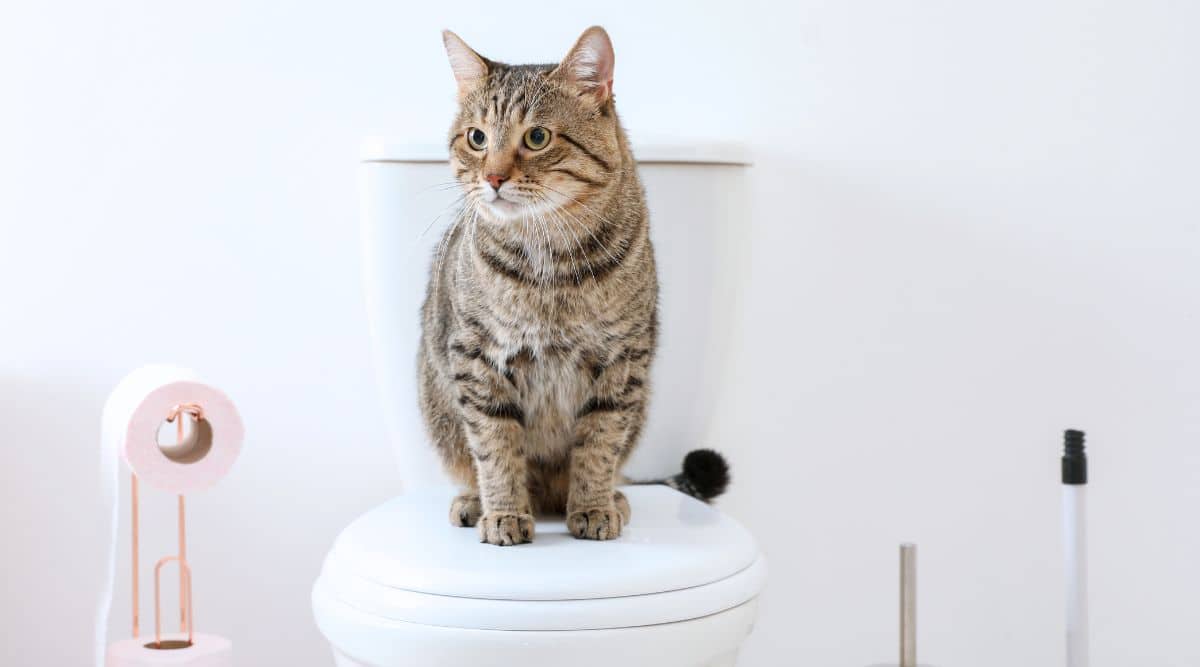Avoid Flush Cat Poop Down Your Toilet - Protect Your Plumbing Infrastructure
Avoid Flush Cat Poop Down Your Toilet - Protect Your Plumbing Infrastructure
Blog Article
Just about everyone seems to have their own rationale with regards to Don’t flush cat feces down the toilet.

Introduction
As feline proprietors, it's important to bear in mind exactly how we dispose of our feline friends' waste. While it may seem hassle-free to flush feline poop down the commode, this technique can have harmful effects for both the environment and human health and wellness.
Ecological Impact
Purging feline poop introduces harmful pathogens and bloodsuckers into the water supply, posturing a substantial danger to water ecological communities. These pollutants can adversely impact aquatic life and compromise water high quality.
Health and wellness Risks
Along with environmental problems, purging feline waste can also present wellness threats to humans. Cat feces may consist of Toxoplasma gondii, a bloodsucker that can create toxoplasmosis-- a possibly extreme health problem, particularly for pregnant females and people with weakened immune systems.
Alternatives to Flushing
Fortunately, there are safer and a lot more responsible means to dispose of pet cat poop. Take into consideration the complying with choices:
1. Scoop and Dispose in Trash
The most typical approach of throwing away pet cat poop is to scoop it into an eco-friendly bag and toss it in the trash. Make certain to utilize a committed trash inside story and dispose of the waste quickly.
2. Use Biodegradable Litter
Select naturally degradable feline clutter made from materials such as corn or wheat. These litters are eco-friendly and can be safely gotten rid of in the garbage.
3. Hide in the Yard
If you have a backyard, think about burying cat waste in a designated location away from vegetable yards and water resources. Make certain to dig deep sufficient to prevent contamination of groundwater.
4. Mount a Pet Waste Disposal System
Invest in a pet dog garbage disposal system specifically designed for pet cat waste. These systems use enzymes to break down the waste, decreasing odor and environmental impact.
Conclusion
Responsible family pet possession prolongs past supplying food and shelter-- it likewise includes appropriate waste management. By avoiding purging cat poop down the toilet and selecting different disposal methods, we can reduce our ecological footprint and safeguard human wellness.
Why You Should Never Flush Cat Poop Down the Toilet
A rose by any other name might smell as sweet, but not all poop is created equal. Toilets, and our sewage systems, are designed for human excrement, not animal waste. It might seem like it couldn’t hurt to toss cat feces into the loo, but it’s not a good idea to flush cat poop in the toilet.
First and foremost, assuming your cat uses a litter box, any waste is going to have litter on it. And even the smallest amount of litter can wreak havoc on plumbing.
Over time, small amounts build up, filling up your septic system. Most litter sold today is clumping; it is made from a type of clay that hardens when it gets wet. Ever tried to scrape old clumps from the bottom of a litter box? You know just how cement-hard it can get!
Now imagine just a small clump of that stuck in your pipes. A simple de-clogger like Drano isn’t going to cut it. And that means it’s going to cost you big time to fix it.
Parasitic Contamination
Believe it or not, your healthy kitty may be harboring a nasty parasite. Only cats excrete Toxoplasma in their feces. Yet it rarely causes serious health issues in the cats that are infected. Most people will be fine too if infected. Only pregnant women and people with compromised immune systems are at risk. (If you’ve ever heard how women who are expecting are excused from litter cleaning duty, Toxoplasma is why.)
But other animals may have a problem if infected with the parasite. And human water treatment systems aren’t designed to handle it. As a result, the systems don’t remove the parasite before discharging wastewater into local waterways. Fish, shellfish, and other marine life — otters in particular — are susceptible to toxoplasma. If exposed, most will end up with brain damage and many will die.
Depending on the species of fish, they may end up on someone’s fish hook and, ultimately on someone’s dinner plate. If that someone has a chronic illness, they’re at risk.
Skip the Toilet Training
We know there are folks out there who like to toilet train their cats. And we give them props, it takes a lot of work. But thanks to the toxoplasma, it’s not a good idea.

I stumbled upon that piece of writing about How to Dispose of Cat Poop and Litter Without Plastic Bags while doing a search on the web. Please set aside a second to share this blog posting if you liked it. I praise you for your time. Visit us again soon.
Get Your Estimate Now Report this page